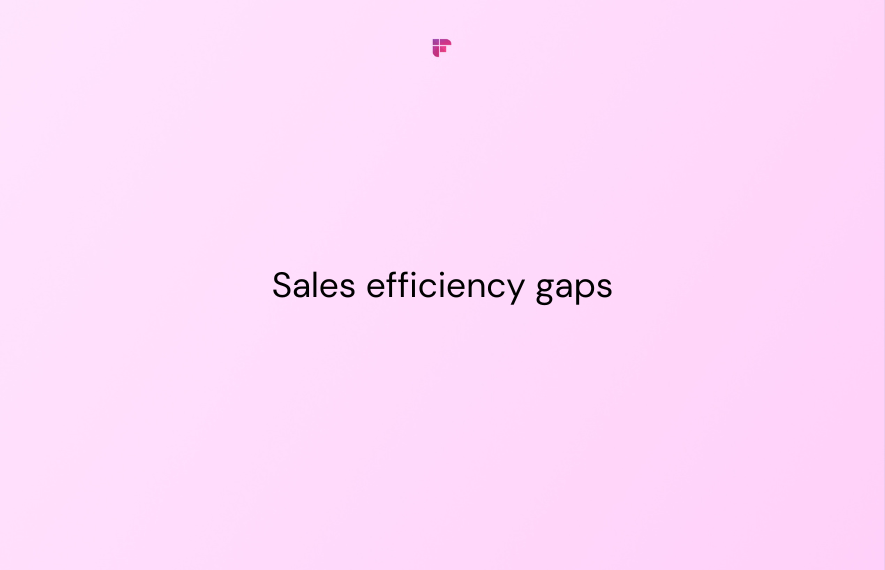Achieving maximum sales efficiency is crucial for boosting revenue and winning against competitors. But have you wondered, "How can I attain remarkable sales efficiency and conquer the obstacles hindering my sales team?"
This blog will unravel the significance of sales efficiency, gain insights into common challenges, and uncover actionable strategies to empower you on your journey. Read on!

What is sales efficiency?

Sales efficiency refers to maximizing the output and productivity of the sales team while minimizing costs and resources.
It involves increasing sales with the same amount of resources or maintaining the same level of sales with fewer resources.
Here's why your business should strive for efficiency in sales:
- Measures the cost-effectiveness of your company's sales procedures
- Helps you spend your resources and time properly
- Ensures effective lead conversion, shorter scales cycles, and increased customer satisfaction
Fireflies is an AI notetaker tool that records, transcribes, summarizes, and analyzes all your sales conversations at 90%+ accuracy. This way, you can easily create a reliable and easily accessible knowledge base for all your customer calls.
It also offers powerful conversation intelligence features that enables you to identify and modify your sales strategies as per customer sentiments. You can further enhance your teams' collaboration and performance by leveraging Fireflies' advanced collaboration features like Soundbites, Thread, Playlists, seamless integrations and much more!

How to measure sales efficiency

To measure your sales efficiency, simply divide the sales revenue by the cost of generating those sales.
Here's an easy formula to help you out:
Here are some handy tips to help you make this calculation:
- Select products or services and set a time frame for analysis (e.g., six months.)
- Calculate the total revenue for the selected items within the chosen time frame.
- Determine the total marketing and sales costs for the products or services.
- Create a ratio and simplify it to its lowest form. (for instance, if the sales efficiency ratio for a product is $20,000:$5,000, the reduced ratio for this product is 4:1.)
You can measure the efficiency of a sales rep or team over any period, such as a quarter, a year, or even a month (for teams with shorter sales cycles.)After calculating your revenue and expenses using the sales efficiency formula, you must assess the ratio.
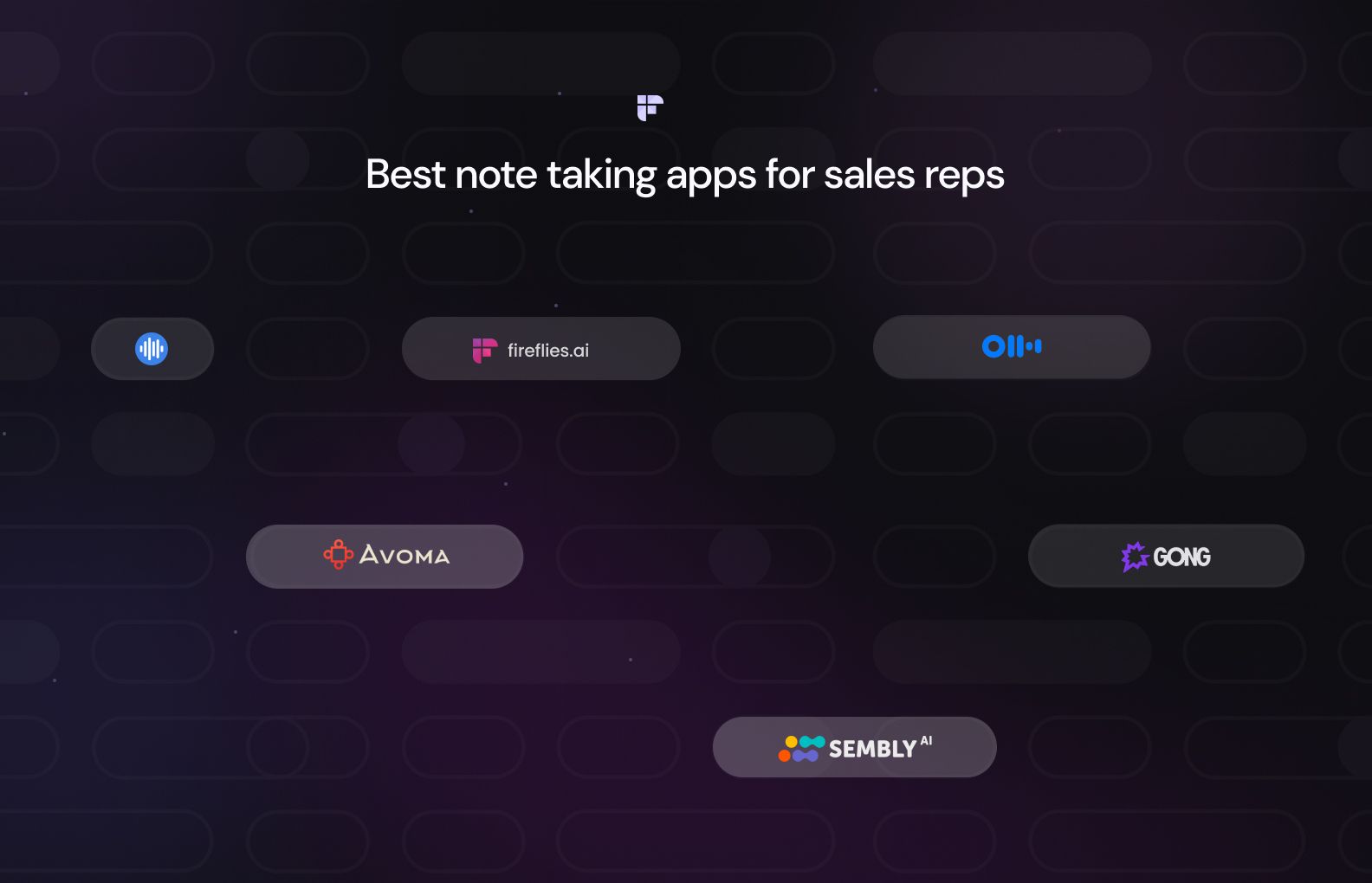
A ratio below 1 means you spend more on sales than what they bring in, indicating unsustainable practices. A ratio above 1 signals a positive ROI, with a range of 1 to 3 considered good.
A ratio over 3 is exceptional, showing high efficiency and strong product-market fit.
The difference between sales efficiency and sales effectiveness

Sales efficiency and effectiveness are often used interchangeably, but they have distinct meanings.
Sales efficiency measures how well your team performs with the given resources, generating more revenue relative to the cost. Sales effectiveness, on the other hand, focuses on converting prospects throughout the buyer's journey and achieving measurable business outcomes.
Ultimately, it involves prioritizing what matters most to your company and ensuring your sales team has all it needs to achieve success.

7 Common challenges businesses face in achieving sales efficiency
Here are some challenges you may encounter that can lead to sales efficiency gaps in your organization.
- Properly identifying sales trends and patterns
- Lack of adequate technology
- Ineffective sales training
- Measuring results
- Lack of sales alignment
- Data misinterpretation
- Determining the appropriate KPIs to track
1. Properly identifying sales trends and patterns
Identifying trends and patterns in sales data helps uncover areas of improvement and potential issues.
Failure to recognize and analyze these trends can prevent your business from addressing inefficiencies and adapting to changing market conditions, leading to missed opportunities for sales growth.
2. Lack of adequate technology

Outdated or inadequate technology tools and sales channels can hinder sales efficiency.
Ignoring the need to upgrade tools and adopt modern sales channels can lead to inefficiencies, such as manual processes, limited automation, and an inability to leverage data effectively for sales optimization.
3. Ineffective sales training
If your sales team is not adequately trained or lacks the necessary skills, it is harder to meet sales targets and reduces efficiency.
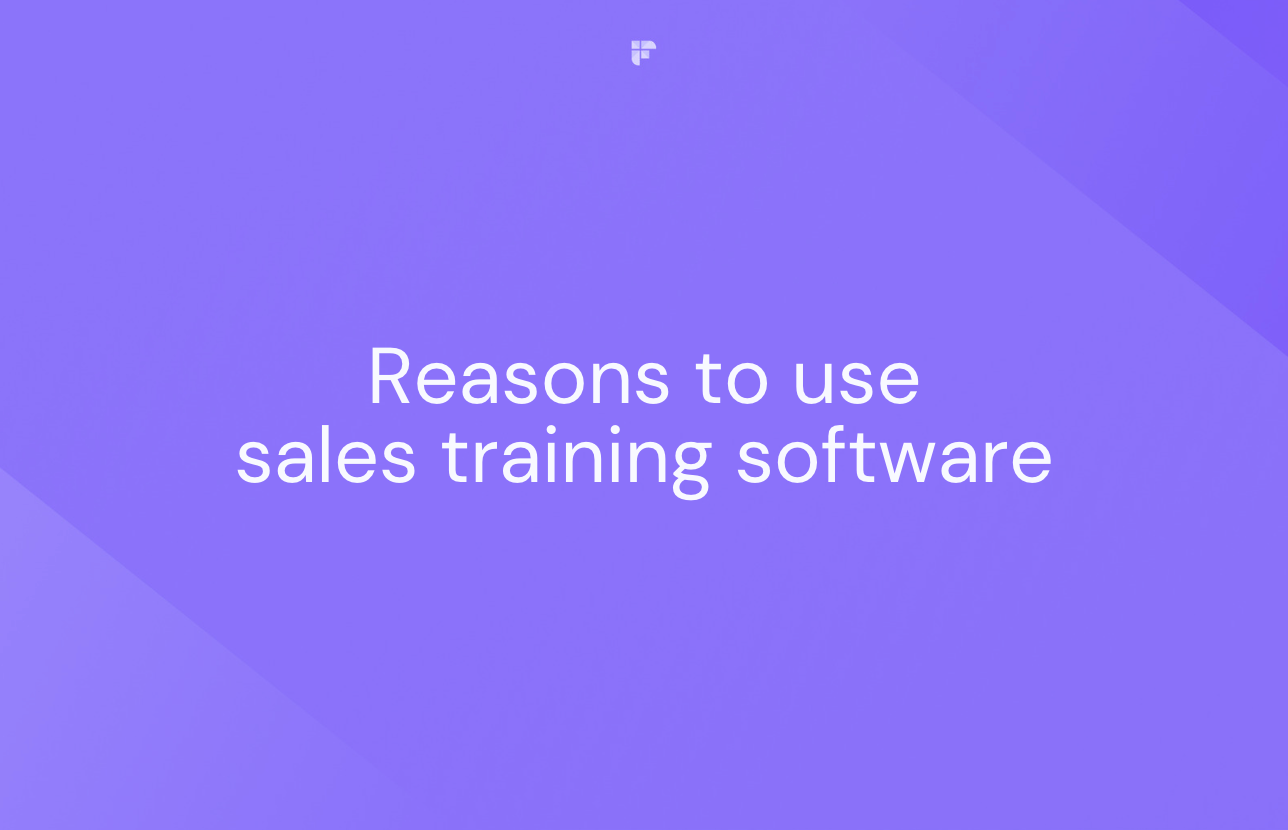
4. Measuring results
Measuring and comparing sales productivity to previous periods is crucial for assessing sales efficiency.
Failing to measure results and align them with overall business goals can prevent you from evaluating sales processes and identifying areas that require improvement.
5. Lack of sales alignment
A lack of alignment between the sales team and other departments, such as marketing or customer service, can hinder sales efficiency.
6. Data misinterpretation

When you misinterpret sales data, you're more likely to make hasty decisions or overlook underlying factors affecting sales performance, resulting in ineffective changes and wasted resources.
7. Determining the appropriate KPIs to track
Once your business fails to select the most relevant Key Performance Indicators (KPIs) or doesn't track them consistently, it becomes difficult to identify areas of improvement and track progress accurately.
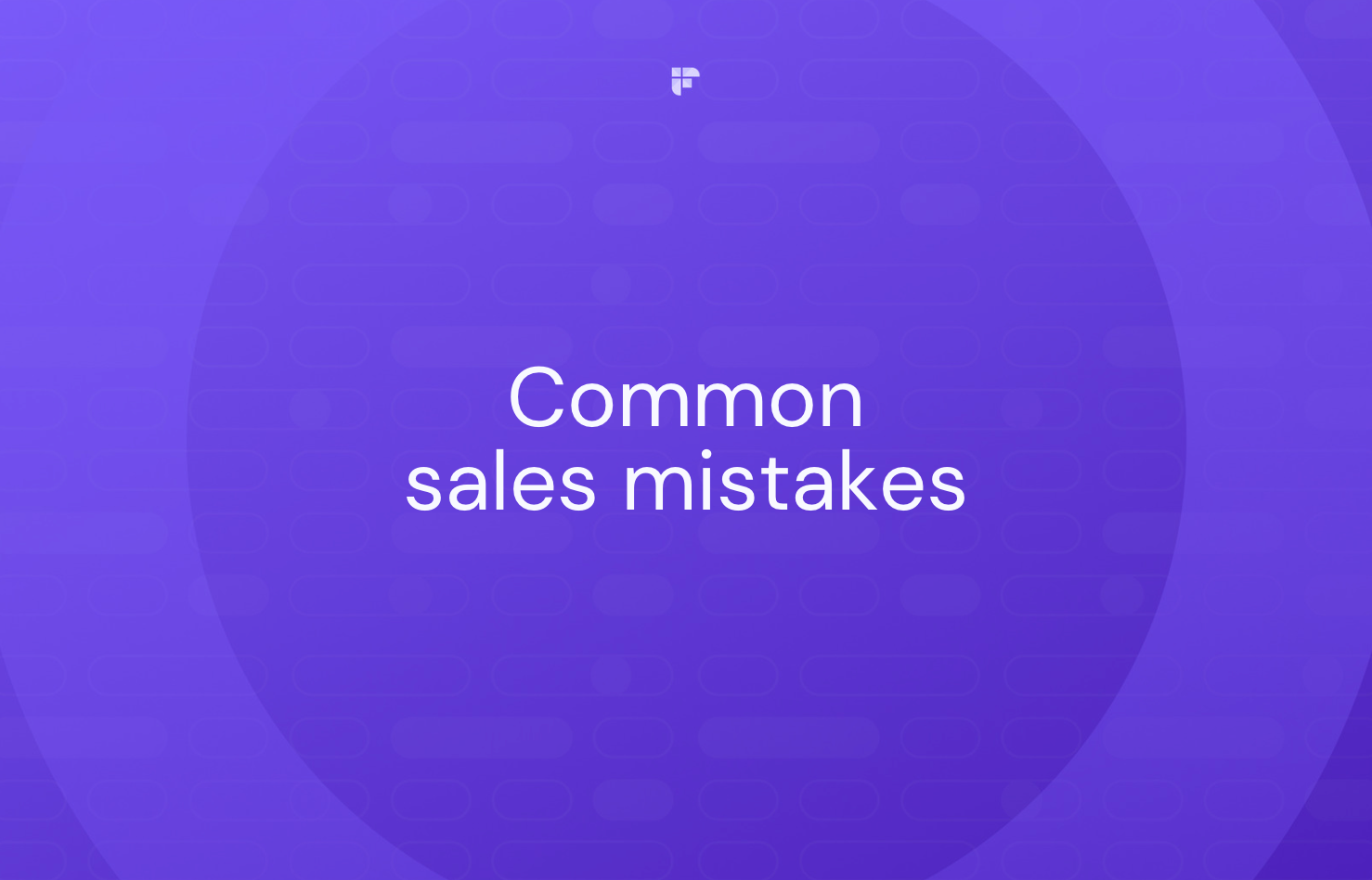
Other important sales efficiency metrics you should consider

The sales efficiency calculation isn’t the only way to measure your team’s efficiency. Here are other sales efficiency metrics to consider.
- LTV: CAC ratio: This measures the return on investment in sales and marketing by comparing customer lifetime value (LTV) to customer acquisition cost (CAC). A higher ratio indicates greater efficiency.
- Total revenue: This metric tracks the yearly income of a business and helps monitor changes on a quarterly and monthly basis.
- Payback period: This refers to the time taken to recover the cost of acquiring a customer. A shorter payback period indicates higher efficiency, but it may not be suitable for comparing businesses with different revenue models.
- Customer acquisition cost: This sales efficiency metric determines the expenses incurred to acquire a new customer, primarily marketing costs.
- Revenue per customer: It indicates the amount of revenue generated per customer.
- Market share: This evaluates your sales performance relative to the total addressable market to help you identify potential areas for improvement.
11 Ways to improve sales efficiency in your business
Use these helpful tips to take your sales efficiency to the next level.
- Know your target audience
- Learn about your customers' priorities
- Ask for feedback from sales representatives
- Develop consistent sales processes
- Create regular sales activities
- Conduct regular team meetings
- Align sales and marketing teams
- Use CRMs
- Improve sales team performance through training
- Automate prospecting and follow-up activities
- Determine the important metrics
1. Know your target audience
Understand your audience to tailor sales strategies effectively and save time by focusing on the most likely leads.

2. Learn about your customers' priorities
Research and understand customers' current challenges and needs so you can easily tailor sales pitches accordingly.
3. Ask for feedback from sales representatives
Make more effort to engage with your team, gather suggestions for process improvement, and provide necessary support based on their needs. This cultivates an atmosphere that supports and facilitates their ongoing development.

4. Develop consistent sales processes
A sales process is a set of steps salespeople follow to close deals. It typically includes prospecting, analyzing needs, presenting solutions, handling objections, and closing.
A consistent sales process can empower your team to perform better and enable systematic adjustments and result tracking.

5. Create regular sales activities
Establish daily, weekly, or monthly activities to help you identify leads and move customers through the sales funnel.
6. Conduct regular team meetings
Personal interaction remains vital if you want to discover your team's performance. This is particularly important for remote teams as it helps foster personal connections and provides an opportunity to address areas for improvement.
A meeting assistant like Fireflies helps remote sales teams increase their efficiency as it automatically records, transcribes, and summarizes all your sales meetings, providing a detailed record of conversations and discussions.
This way, they can review and analyze the content for insights and areas of improvement.
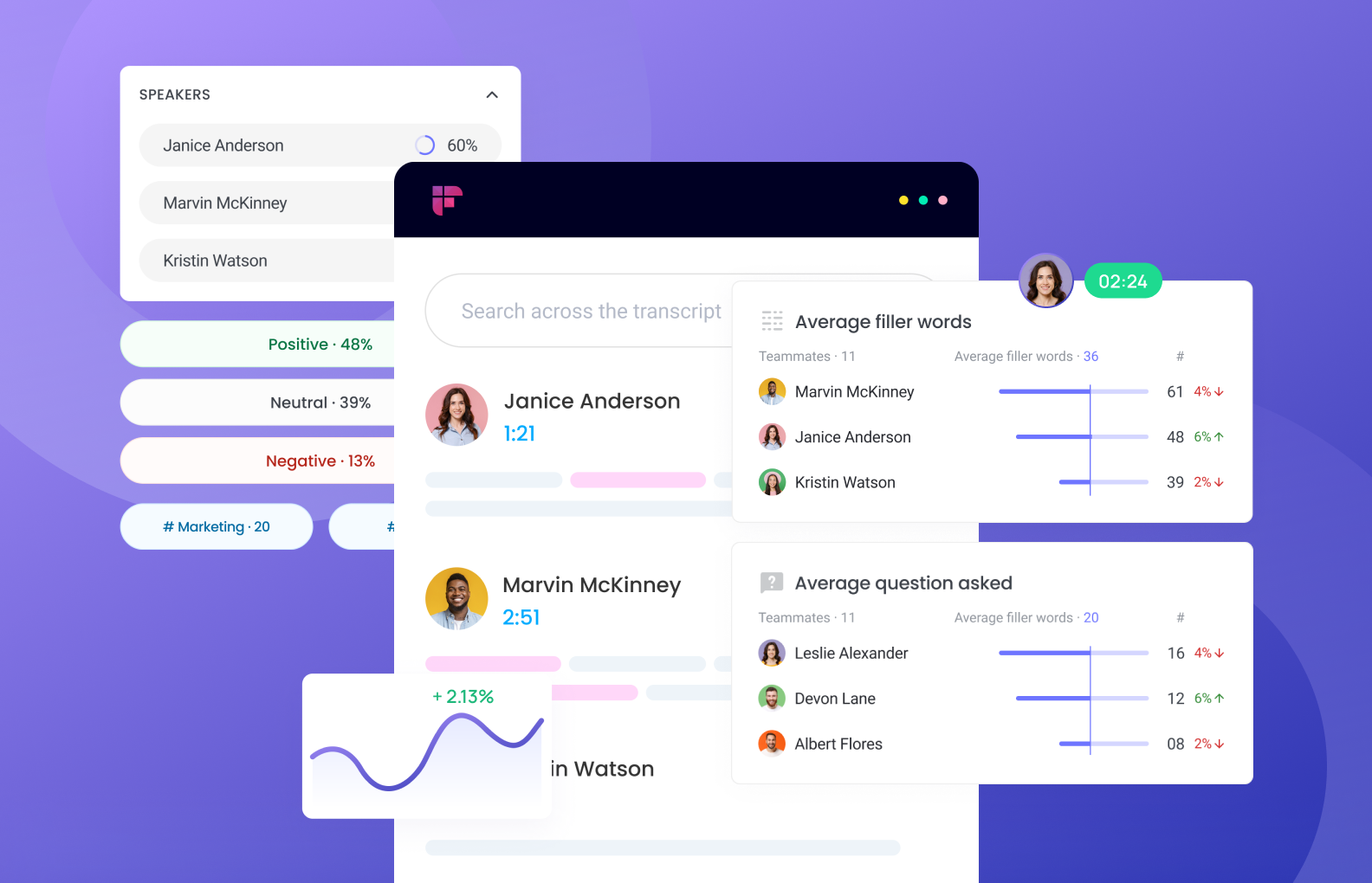
7. Align sales and marketing teams
By aligning your sales and marketing teams, you'll create a conducive environment for both teams to work collaboratively, resulting in increased productivity. Ultimately, this enhances sales efficiency and leads to higher revenues.
8. Use CRMs
Implement comprehensive CRM systems to streamline data input, collect customer information, and gain insights into sales cycles and strategies.
9. Improve sales team performance through training
Investing in sales training is vital in achieving consistent and reliable performance from your sales team.
Its conversation intelligence allows sales managers to assess sales calls at both team and individual levels. You can also gather valuable insights on the number of calls your reps make, their talk-to-listen ratio, usage of filler words, talking speed, and more.

10. Automate prospecting and follow-up activities
Automating prospecting and follow-ups can streamline your workflow. Use automation tools to filter out connections that don't fit your target audience and establish a well-defined schedule for follow-up actions to keep potential customers engaged.
For instance, if the sentiment during calls is consistently positive, the sales rep can follow up and hand it over to an account executive for further nurturing. Also, Fireflies' ChatGPT-powered AskFred can create automated follow-up emails to send to prospects, making it easier for sales reps to stay in touch with potential customers.
11. Determine the important metrics
Establishing the key sales metrics that are most important for your business is crucial for monitoring and enhancing your performance.
Every sales call transcript Fireflies generates is loaded with actionable insights and metrics such as the number of times your competitor is mentioned, call volume, close rates, and average deal size.
Wrapping up,
There it is! The ultimate guide on how to identify and address sales efficiency gaps and achieve revenue velocity like never before!
From analyzing data to optimizing workflows and leveraging technology, this guide has equipped you with the tools to unlock your sales team's full potential.
So, gear up, embrace the insights gained, and watch your revenue soar to new heights.

